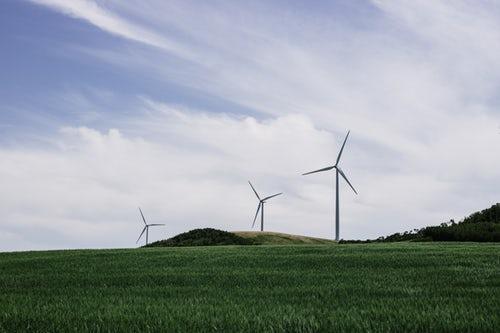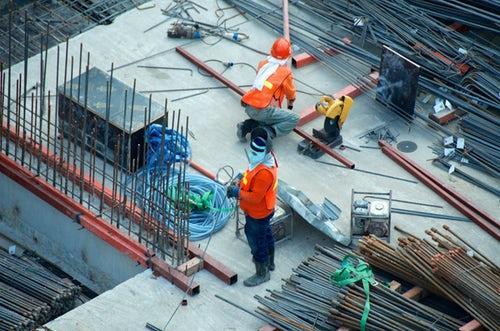Focus industries

Explore your business opportunities in Greater Copenhagen's key industries: Smart City, Cleantech, Life Sciences, ICT, Food, the Creative Industries and Transport & Logistics.
Life Sciences

Greater Copenhagen’s life sciences industry is world leading for R&D spending, clinical testing and drug development.
Denmark is number two in the world for developing biotechnology and number one in Europe in number of clinical trials per capita, owing to a strong life science industry employing more than 40,000 people.
Medicon Valley in Greater Copenhagen has:
- 4 life science universities with 50,000 students, producing 2,000 PhDs every year.
- 22 hospitals of which 11 are university hospitals.
- More than 150 biotech companies and 200 medtech companies.
- Leading researchers, clinicians and academics.
Medicon Valley is based on close collaboration between industry, academia and the public sector, and has Scandinavia’s best knowledge transfer between the public and the private sector, providing excellent R&D opportunities.
Large healthcare investments
Denmark’s public sector is currently investing € 5.6 billion in building and renovating 16 hospitals, of which six are brand new super hospitals. Around 20% of this investment is reserved for IT, medtech devices and clinical equipment.
Tenders to furbish the hospitals as well as invitations for public private partnerships to develop new health care supply solutions will be published at Greater Copenhagen Investment.
Biotech
Medical products is the single largest export category in Denmark, amounting to 17 billion Euro annually. Pharmaceutical R&D accounts for 21% of the total private research spending in Denmark. In addition, around 130 million Euro is spent on clinical research every year.
This results in a powerful pipeline with around 400 compounds in Danish companies, ranking Denmark third in overall pipeline in Europe, including in particular:
- Cancer
- Diabetes and metabolic diseases
- Neurological disorders
- Inflammation, allergy and autoimmune diseases.
Medtech
Medicon Valley is home to more than 200 + medico companies of which 200 conduct R&D and/or production. Strongholds include:
- Disposables. Syringes, needles, wound-care products, single-use devices and other disposables account for 40% of the Danish medtech industry.
- Diagnostics. Around 20 companies are engaged in R&D developing various diagnostics kits, blood analysis equipment, ultrasound scanners and bioinformatics diagnostics.
- Hearing devices. Denmark has captured 40% of the global hearing aid market, owing to strong R&D competences.
- Assistive technology. Design, functionality, quality and user-friendliness characterises Danish assistive technology products, giving Denmark a leading position.
Logistics
Greater Copenhagen is Scandinavia’s logistics hub. From here, you can reach 100 million consumers in Scandinavia and the Baltics within 24 hours.
Greater Copenhagen is the logistics capital and centre of gravity in Scandinavia, bridging Europe and the Nordics. With ten countries bordering the Baltic Sea, you can reach 100 million consumers within 24 hours.
Almost 55% of all Scandinavian companies – more than one million – and 35% of the entire Scandinavian population are within a 3-hour drive from Copenhagen City.
Logistics leaders in Copenhagen
Large global logistics companies in Copenhagen include DHL Express, FedEx, PostNord, UPS and TNT.
They have chosen Greater Copenhagen for their logistics centre in Scandinavia, owing to the region’s excellent infrastructure and its close proximity and short lead time to the rest of Scandinavia, Northern Europe, Russia and the Baltics.
Copenhagen has Scandinavia's largest airport
Copenhagen Airport is Scandinavia’s largest airport with the most intercontinental, European, Scandinavian & Baltic connections of all the Scandinavian airports, expanding to 40 million passengers in 2020. The airport is located in the heart of Greater Copenhagen, only 15 minutes from the city centre.
- No. 1 airport in Northern Europe – World Airport Awards 2015.
- No. 1 for world’s best airport route development – World Routes Award 2013.
- No. 2 in the world for “Best airport security” – World Airport Awards 2015.
Cleantech

Copenhagen is a cleantech hub for green investment and innovation. Copenhagen's cleantech cluster excels in smart city and smart grid, renewable energy, water and waste management as well as recycling and upcycling technologies.
Greater Copenhagen's cleantech cluster has taken a lead position in innovation, prompted by state incentives and ambitious regulation.
Copenhagen aims to become the first carbon-neutral capital by 2025, and Denmark aims to be fully independent of fossil fuels by 2050.
The cleantech industry in Copenhagen is supported by several incentives and funding opportunities, sustaining cleantech research and development.
The Danish Parliament has agreed that by 2020:
- More than 35% of the total energy consumption must be renewable.
- Around 50% of the electricity consumption must be supplied by wind power.
- Greenhouse gas emissions must be 34% lower than in 1990.
Renewable energy
Greater Copenhagen and Denmark have taken a lead position in sustainable energy. Today, 30% of Denmark’s electricity consumption is covered by wind turbines, increasing to 50% by 2020.
Smart City
In Copenhagen, companies have access to unique, high-quality data and electronic registries dating back decades. This is turning Greater Copenhagen into a preferred laboratory for smart city technologies to build, monitor and manage the data infrastructure of large cities, able to handle the challenges of climate change and urbanisation.
Close collaboration between business, academia and the public sector as well as across industry sectors is a strong tradition in Greater Copenhagen, providing a competitive advantage for developing and testing smart city solutions.
More than 250 companies, including Cisco and Hitachi, are involved in smart city activities in Greater Copenhagen, owing to the early-adopter citizens and the high level of digitisation in the public sector.
Smart Grid
Greater Copenhagen’s Smart Grid sector is among Europe's leading, attracting international research and innovation. In recent years, more than 30% of all EU Smart Grid R&D projects have taken place in Denmark.
Denmark has a long tradition for the early adoption of renewable energy sources and integration of green technologies into all steps of the Smart Grid value chain.
Copenhagen's Smart Grid projects are driven in partnerships between industry associations, academia, research institutions and the public sector.
Greater Copenhagen Smart Grid projects:
Bioenergy
Danish companies have developed efficient methods of combustion, gasification and liquefaction of biomass for biofuels and biogas, and they have pioneered enzyme technologies to maximise the efficiency of biofuels.
Owing to the strong biotech, chemical and agricultural science industries in Greater Copenhagen, companies excel in the latest technologies supporting carbon mitigation.
Green transportation
Cleantech in Copenhagen includes focussing on green transportation.
Broad political consensus supporting green transportation has rapidly accelerated the innovation and commitment to electric vehicles, biofuels, hydrogen and fuel cells in the Danish transport sector.
This commitment has sparked public-sector collaboration with the energy industry, research institutions, car manufacturers and suppliers of electric vehicle charging facilities.
ICT
We invite international ICT companies to help us build the world’s first carbon-neutral capital city by creating, testing and developing ICT solutions in Greater Copenhagen.
Copenhagen aims to become the world’s first carbon-neutral capital by 2025, and sets out to reduce its current carbon emission level by almost 50% - from 2.5 million tons to less than 1.2 million tons.
Energy, energy consumption, mobility and city administration are the four priority areas in the2025 Copenhagen Climate Plan.
In Greater Copenhagen, ICT projects to support this agenda have emerged within big data, smart city, intelligent lighting & photonics and the Internet of Things.
Denmark is Europe's most digital nation
ICT in Copenhagen is supported by Denmark's record-high level of public-sector digitisation. Today, most Danes have a digital mailbox through which they receive all written communication from the public sector.
Owing to Denmark's ambitious e-government strategy and the e-signature system, NemID, citizens handle everything from internet banking to changing tax registrations and booking a doctor's appointment online.
The contract on NemID expires at the end of 2017 and a replacement must be developed. International companies are invited to develop the next generation of Denmark's digital identification signature.
Big Data
Greater Copenhagen offers unique access to electronic databases and registries which foreign companies can use freely for research, test and development purposes.
Hitachi has opened its first mainland Europe big data research laboratory in Copenhagen and is building the world's first city data exchange in Copenhagen.
Intelligent lighting and photonics
Greater Copenhagen is a world leader in lighting and photonics research, with the Technical University of Denmark repeatedly breaking the world record in data transmission.
Greater Copenhagen’s ICT cluster includes the Danish Outdoor Lighting Lab (DOLL), consisting of three laboratories: Quality Lab, Virtual Lab and Living Lab, which includes 9.2 km of road and pathways for testing lighting solutions. DOLL is open for foreign lighting firms to test new solutions.
Smart City
Copenhagen won the World Smart Cities Award in 2014 for its Copenhagen Connecting Project, demonstrating the city's Smart City leadership.
Greater Copenhagen has become a living test lab for Smart City solutions, owing to easy access to collaboration and partnerships with the public sector, industry and academia. Moreover, Denmark has a long tradition of citizen involvement in urban planning and development, and the Danes are early adopters of new technologies.
Internet of Things
Greater Copenhagen is at the forefront of developing tomorrow's digital infrastructure and invites foreign companies to use the metropolis as a living laboratory.
Cisco Systems recently entered into a groundbreaking partnership with three Danish municipalities and the Danish Outdoor Lighting Lab to develop IoT-based citizen services and solutions to help Copenhagen reach the city's objective of becoming carbon-neutral by 2025.
ICT in the finance sector
Copenhagen is a hotspot for developing innovative ICT solutions for the finance sector. Well-operated partnerships between government and private sector companies are the result of a long tradition of developing common infrastructure solutions for the financial sector and have led to Denmark being a global leader in digitising secure processes.
Greater Copenhagen is home to one of Europe's largest ICT clusters with more than 12,000 IT companies and 100,000 IT employees. Finance and ICT total 5% of Denmark's employment with a high concentration in Copenhagen, where the financial/IT sector makes up 13% of private employment.
Key strenght positions in Greater Copenhagen include IT security, process optimisation, investment software, mobile banking technologies and usability.
Intelligent traffic systems
Intelligent traffic systems (ITS) is a priority area in Greater Copenhagen with substantial investment allocations over the next five years as part of the 2025 climate plan. Copenhagen will host the ITS World Congress 2018.
Creative Industries

Greater Copenhagen sparks strong fashion brands, thrilling TV, film and gaming productions, simplistic design and sustainable architecture – and offers great business opportunities.
Greater Copenhagen is home to world-class creatives, incubating innovative ideas and products in high demand.
The creative industries make up 10% of Denmark's total exports, offering great opportunities for international businesses.
Key industries are design, architecture and furniture, fashion and clothing, film and TV production as well as gaming and interactive entertainment.
Film and TV
Danish TV drama and crime thriller series, such as The Killing and Borgen, are currently experiencing huge international success. Danish scriptwriters, directors and actors are often on board large international productions – and a growing number of large international film productions choose Denmark and Greater Copenhagen for shooting. For example Tom Hooper’s production, The Danish Girl, to be released by the end of 2015.
Gaming and entertainment
The computer game, mobile application and interactive entertainment industry is bustling in Greater Copenhagen. Reflecting the global market demand, innovative creatives specialising in smart phones, tablets, apps and games have fostered international successes such as the multi-award winning computer game Hitman, Subway Surfers and Limbo.
Fashion and clothing
Greater Copenhagen is the fashion metropolis of Northern Europe, recognised for its Nordic sophistication, minimalistic fashion and high-quality garment production. Fashion and clothing is the single most lucrative creative business in Denmark with a total revenue of around 7.5 billion Euros, of which 50% derive from exports. Denmark is the world's most specialised exporter of fur commodities.
Design and architecture
Danish design and architecture is world-famous for its distinctive tradition of elegance, high quality and functionality. Danish architects are gaining increasing international recognition for their sustainable buildings and solutions able to meet the challenges of climate change, and Danish designers are praised for their technical, digital and user-driven design skills.
The Danish design and architecture sector, which includes icons such as Jørn Utzon and Bjarke Ingels, is a billion Euro industry with up to 98% export rates.
Food & Additives
Greater Copenhagen is home to Europe’s third largest food cluster, offering access to world-class food producers, research-intensive universities and strong business partners.
Food products and food technology ‘made in Denmark’ are synonymous with high quality, safety and excellent hygiene. As a result, producers of food additives in Denmark export 95% of their goods and producers of processing equipment export 80% of their goods.
Greater Copenhagen is home to Europe’s third largest food cluster, offering access to world-class producers of foods and beverages, research-intensive universities, leading public and private business partners, specialist competencies and advanced technological knowhow.
Food additives
Globally, the demand is growing for food ingredients to promote health, ensure food safety and longer shelf life as well as to optimise production processes in the food industry.
Denmark holds a strong global position supplying 14% of all bio-ingredients, probiotics, sweeteners, proteins and emulsifiers to the global food ingredients industry.
Key strengths in the Danish food additives sector:
- Manufacturing expertise and know-how throughout the value chain.
- Collaboration with world-class universities.
- Access to highly-skilled employees.
- Leading companies such as Novozymes, Chr. Hansen, DuPont Nutrition and Health, Arla Foods Ingredients and Cargill Nordic are all headquartered in Denmark.
- Clear political focus on the food industry.
Food technologies
Greater Copenhagen’s food cluster offers unique business opportunities for producers of food processing equipment and technologies. Companies developing innovative solutions have a strong platform to test and market products at an early stage. More than 80% of all food processing equipment, machinery and robots produced in Denmark are being exported.
Key areas of Danish production technology include:
- Advanced packaging solutions.
- Beverage production and safety technology.
- Automation of processes and safety at slaughterhouses.
- Technology for production of advanced chocolate products.
- Automated production lines for industrial scale bakeries.
Construction

Major international companies in the building and construction industry are choosing to work in Greater Copenhagen – and it’s easy to see why.
The Danish building and construction industry is thriving. Investor confidence is high and profits are healthy, but bids are in short supply.
The largest Danish building companies are eager for more international companies to participate in tenders for major building projects. Foreign players with special competencies and innovative, efficient building methods are particularly welcome and stand an excellent chance of winning business.
Secure, stable and transparent
Companies working in Greater Copenhagen get the strength and dependability of a complete package: an inclusive and co-operative industry, excellent ROI, a buoyant economy, readily available skilled labour and an effective, transparent construction process.
Denmark is the least corrupt country in the world so it is easy to obtain construction permits, register property, arrange credit lines, pay taxes, protect investors, trade across borders and resolve insolvency problems.
And establishing a business presence in Greater Copenhagen is also quick and easy. From there to winning tenders and cutting the ribbon on a finished project, you can be sure that your business in Greater Copenhagen will be secure, stable and transparent.
A dynamic, expanding pipeline
Greater Copenhagen is the gateway between northern Europe and the rest of Scandinavia. In the space of a few years, this dynamic region will see the addition of ultra-modern high-tech super hospitals, educational facilities, new residential areas as well as infrastructure extensions.
A new breed of modern healthcare construction
Over the next 10 years, Denmark is investing more than EUR 5.4 billion in hospital facilities. Of the 16 nationwide projects currently planned, seven super hospital new build, extension and modernisation projects in Greater Copenhagen are still open for tenders. Budgets range from EUR 87 million to EUR 0.9 billion.
Booming urban development
In 2016, realised construction and site development projects in Greater Copenhagen topped EUR 4 billion – an increase of 42% from 2012. Private construction is driving the trend, and massive public investment in urban development areas is predicted to lead to significant increases in business activity in the building and construction sector over the next 4-5 years.
Vast public infrastructure investments
Over the next ten years, Greater Copenhagen will see a number of vast public infrastructure investments. There is great potential for non-Danish companies to secure attractive tenders within a wide variety of business areas.
Copenhagen Airport will be expanded to handle up to 40 million passengers annually – almost twice its current capacity. The development plan reaches roughly 25 years into the future and has a budget of EUR 1.5 billion.
Other large infrastructure projects include the Ring 3 light railway around Copenhagen with a budget of EUR 0.5 billion, and the new Eastern Bypass harbour tunnel, which will bind together the road network east around the capital and decongest traffic in central Copenhagen, with a budget of EUR 1.2 billion.
